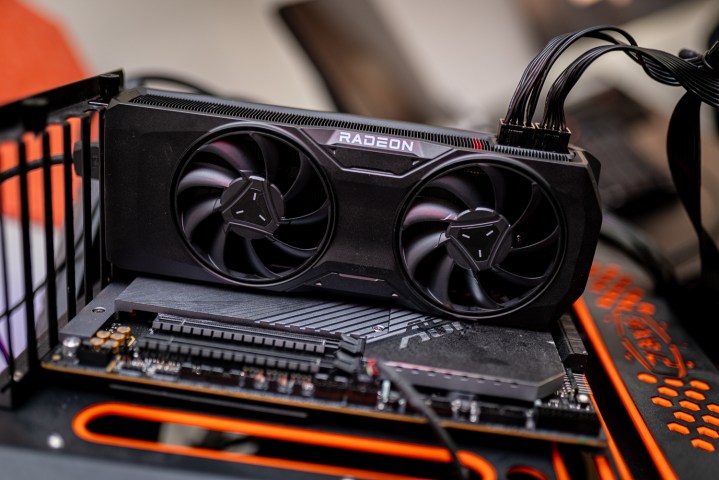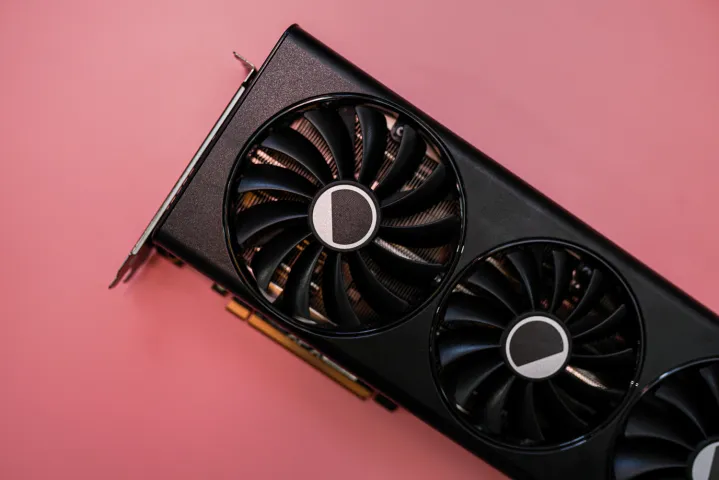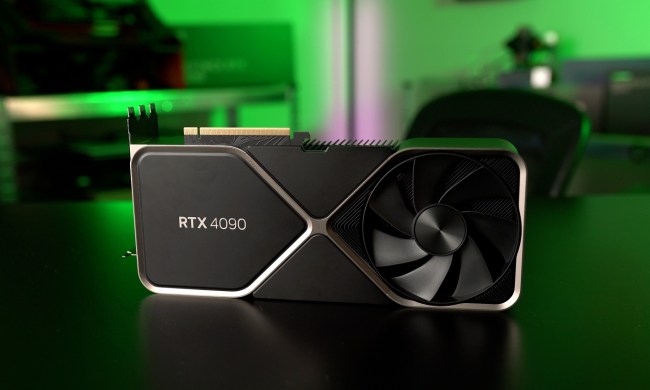
Nvidia’s Goldilocks GPU this generation has been the RTX 4070. For PC gaming in 2024, with the cost of building a PC moving upward, it hit the perfect balance of performance, price, and features. It’s a GPU that can do anything, delivering that premium gaming experience in flagship titles like Cyberpunk 2077: Phantom Liberty and Alan Wake 2 without costing as much as a used car.
But it’s falling behind.
The RTX 4070 was a Goldilocks GPU, but the $500 to $600 market has become hotly contested over the last few months, and far better options are available now. The RTX 4070 was easily the best graphics card of last year, but it’s getting increasingly difficult to recommend.
The AMD angle

A lot of the competition between $500 and $600 comes from AMD, which has intensely focused on this segment of the market with its RDNA 3 GPUs. We have the RX 7700 XT at $420, the RX 7800 XT at $500, and now, the RX 7900 GRE at $550. AMD has seven total GPUs this generation, three of which are focused squarely at this market.
The most direct competition for the RTX 4070 has been the RX 7800 XT. As you can read in our RX 7800 XT review, the graphics card trades blows with the RTX 4070, coming out slightly ahead overall. It’s a classic response from AMD — the RX 7800 XT offers slightly better performance overall and for a lower price, but you don’t get access to DLSS 3.5 and trade some ray tracing performance.
This is the dynamic we normally see in a GPU generation. AMD is able to clap back at Nvidia with a slightly more powerful GPU overall while trading access to features and ray-tracing performance in the process. It worked especially well this generation, too, prompting Nvidia to quickly drop the price of the RTX 4070 from $600 to $550 in a bid to stay competitive.

But then AMD released the RX 7900 GRE. This GPU has a storied history, releasing in the middle of last year exclusively in China as the Golden Rabbit Edition. At the time, AMD announced a U.S. price of $650, but after several months exclusively across the Pacific, it didn’t seem like it would show up across the world. It just did, however, and with a new price of $550.
The RX 7900 GRE is AMD at its most competitive, and in our RX 7900 GRE review, we called it the best graphics card AMD has released this generation. That’s mainly due to the very aggressive price. At the same price as the RTX 4070, AMD delivers around 15% better performance overall, and that accounts for ray tracing. In many lighter ray tracing workloads, AMD even has a lead.
Although late-gen refreshes are typical, we rarely see them upend the status quo of what came before. AMD has certainly put the RTX 4070 in that position, originally with the RX 7800 XT but now more concretely with the RX 7900 GRE. Nvidia itself has upended the RTX 4070, as well.
Nvidia’s apology

Nvidia’s Super refresh felt like an apology. That came through clearly with GPUs like the RTX 4080 Super, but the RTX 4070 Super was in a slightly different position. It was Nvidia getting back at the RX 7800 XT, attempting to claim an undeniable lead at the vital price between $550 and $600.
And Nvidia claimed that lead, as you can read about in our RTX 4070 Super review. It’s by far the most impressive Super refresh, and it managed to knock the RX 7800 XT down in the rankings. Even with the new RX 7900 GRE making the rounds, spending a bit more on the RTX 4070 Super is worth it to unlock better ray tracing performance and DLSS.
The problem is that Nvidia is continuing to sell the base RTX 4070. For the other GPUs that received a Super refresh, Nvidia retired the base versions. The RTX 4070 instead moved from $600 to $550, with the RTX 4070 Super claiming the spot at $600. It’s only a difference of $50, which is an easy premium to justify, considering the Super version is around 11% faster on average at 1440p.
It leaves the RTX 4070 in a tough spot. The crown jewel of Nvidia’s current-gen lineup has found itself outclassed by GPUs arriving in the same price slot, and even with the prices of base RTX 4070 models going down, it’s hard for the graphics card to stand out as much as it once did.
The late-gen refresh

The RTX 4070 isn’t the GPU it once was. We typically see late-gen refreshes have a longer tail, usually offering slight performance improvements while the base models drop in price. With this generation, however, these late-gen refreshes have knocked what we previously had out of relevance.
Unfortunately, the RTX 4070 is the biggest victim in that process. It was Nvidia’s golden goose throughout last year, showcasing what the Ada Lovelace generation could offer in a GPU that was actually affordable enough to buy. With the RX 7900 GRE and RTX 4070 Super floating around now, the RTX 4070 is hard to recommend, despite the fact that Nvidia is still selling it.
The good news is that the GPUs we have today are much faster. If you’ve been eyeing an RTX 4070 for some time, you’re much better off going with an RX 7900 GRE or RTX 4070 Super today. They’re readily available, and both provide a huge bump in performance.




